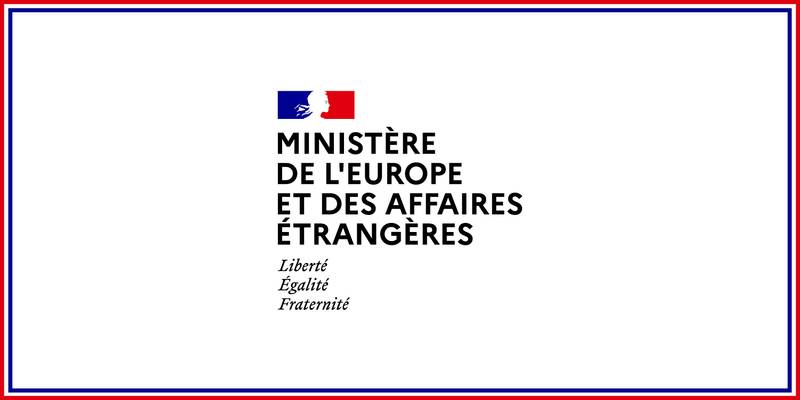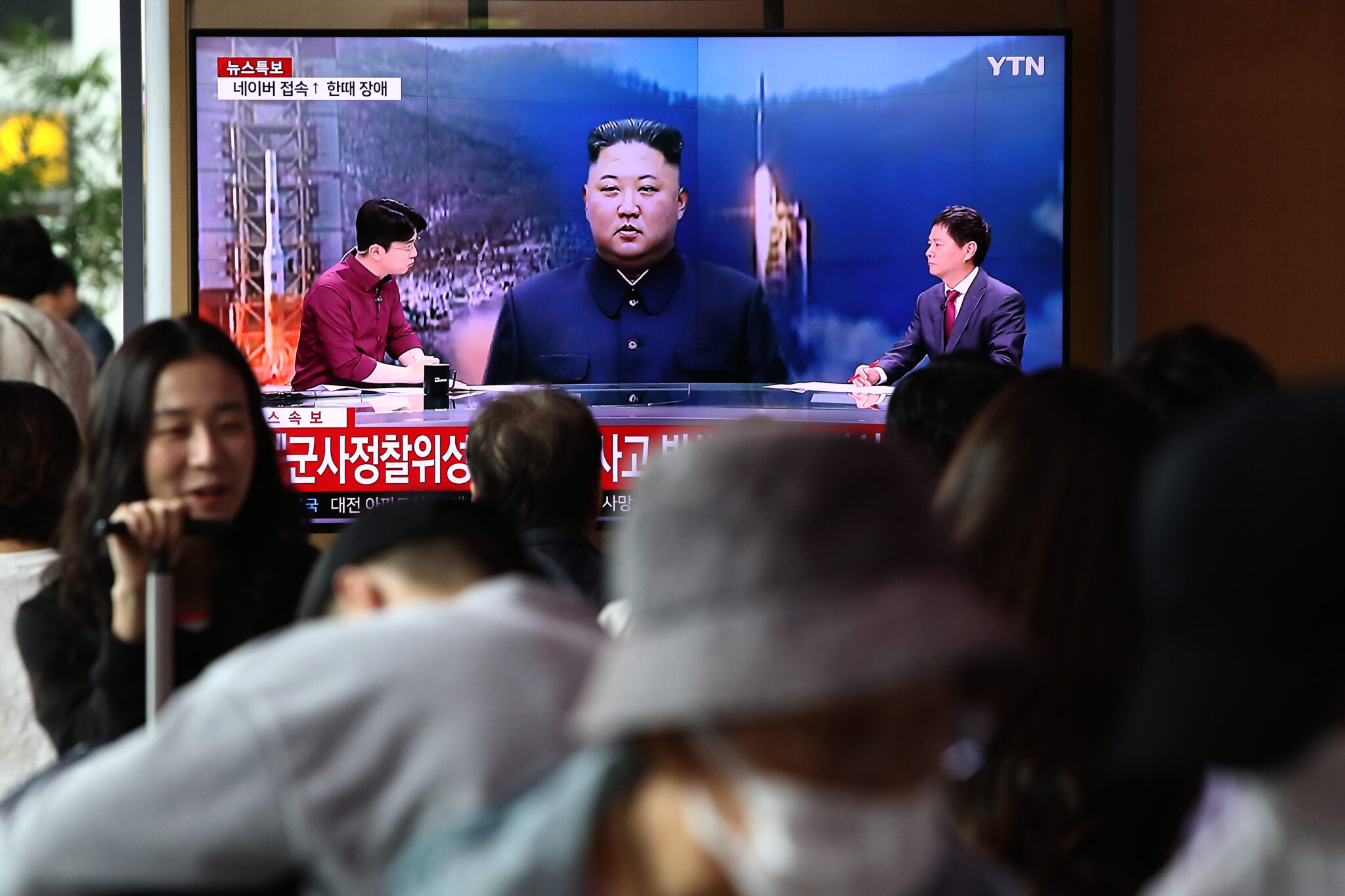[ad_1]
Alsu Kurmasheva is a dual US-Russian citizen and journalist who has been detained by Russia since October 18, charged with failing to register as a “foreign agent” despite having travelled to Russia for a family emergency. She faces up to five years in prison if convicted. Her husband has called for the State Department to designate her as “wrongfully detained”. “She is a US citizen and has the same rights as any US citizen,” he says.
“Alsu Kurmasheva’s arrest is the most egregious instance to date of the abusive use of Russia’s foreign agents’ legislation against independent press,” the Committee to Protect Journalists (CPJ) said in an October statement on her case.
Russia’s expanded law on foreign agents, which now vaguely defines them as anyone “under foreign influence”, has come under fire from human rights groups and media organisations since it entered into force on December 1, 2022. The law’s previous iteration required prosecutors to prove a “foreign agent” had received financial or other material assistance from abroad; the new measures give authorities much greater latitude.
Kurmasheva, an editor with the Tatar-Bashkir Service of US-funded broadcaster Radio Free Europe/Radio Liberty (RFE/RL) – sister station to Voice of America – lives in Prague with her husband and two teenage daughters. She traveled to Kazan, the capital of Russia’s Tatarstan, on May 20 to visit her ailing mother. She was awaiting her flight home at Kazan airport on June 2 when her name was called out over the loudspeaker. Authorities briefly took her into custody and confiscated both her US and her Russian passports, preventing her from leaving the country.
“At that point she wasn’t a suspect, but they took both passports and her phone,” said her husband, Pavel Butorin. “It wasn’t until a couple of days later that she was charged with not registering her US passport,” which is now a criminal offense in Russia.
Kurmasheva completed the necessary paperwork but was made to remain in Kazan for the next four months, when she was eventually fined 10,000 rubles (about $105) on October 11 for failing to register her passport initially. She was still awaiting the return of her travel documents on October 18 when “big men in black” came to her door and took her away, Butorin said.
She has been in detention ever since.
No official word from Russia
Kurmasheva was formally charged on October 26 with the much more serious offence of failing to register as a foreign agent under the expanded law. If convicted, she faces up to five years in prison.
A Russian court ordered late last month that Kurmasheva remain in detention until December 5.
“This offense that she has been charged with is not a violent crime,” Butorin said. “But the judge denied the request for house arrest pending trial.”
The decision to charge her under the foreign agent statute is all the more surprising because she was travelling not as a journalist but on a family-related matter, he said.
“She was there in her personal capacity on what was supposed to be a short trip, two weeks at the most, to help her mom.”
He suspects there is a “clear connection” between Kurmasheva’s detention and her role as a journalist, notably since Russia has designated the Tatar-Bashkir Service for which she works as a “foreign agent” media organisation. Much of her career, however, has focused on advancing Tatar language and culture.
“She’s not an agent of any government, certainly not an agent of the US government,” Butorin said. “She’s a journalist. And we want her released as soon as possible.”
Butorin, who also works in media, is director of Current Time, RFE/RL’s 24-hour Russian-language TV and digital news platform.
He said he hopes the State Department will see fit to designate Kurmasheva as a “wrongfully detained person”, which would allow her case to be transferred to the Special Presidential Envoy for Hostage Affairs (SPEHA), unlocking both US resources and expertise. SPEHA was involved in the release of both Basketball star Brittney Griner and Marine veteran Trevor Reed from Russian detention last year.
A State Department spokesperson said it is “closely following” Kurmasheva’s detention and is continuing to push for consular access, but that “Russian authorities have not yet responded to our requests”.
Moreover, the State Department said it has “not yet been officially notified by the Russian Government of her detention”.
Asked whether Kurmasheva’s dual nationality was complicating her case, the spokesperson noted only that Russia is among the nations that may refuse to acknowledge the US citizenship of a dual national.
“Many countries do not recognize dual nationality” even if they do not expressly prohibit it, the spokesperson said in an email.
As a result, some “do not grant access to … US nationals in detention if they are also nationals of the country where they are detained”.

Cold and overcrowded
Since Russia’s law on foreign agents first came into effect in 2012, Moscow has used it to punish government critics including civil society groups, rights NGOs, media outlets and activists. Russia has also been accused of detaining Americans simply to use them as bargaining chips in exchange for Russians held by the United States: Griner’s freedom was traded for that of notorious arms dealer Viktor Bout.
Kurmasheva has been granted access to a lawyer but not visits or phone calls with her family, although her husband said she has been allowed to exchange (censored) letters with them over the prison’s official online system, “a paid system that takes only Russian cards”.
Only some of the conditions of her detention are known. Her prison is likely overcrowded and is certainly cold, Butorin said, noting that it is currently near 0°C (32°F) in Kazan and that Kurmasheva is not allowed to receive extra blankets from family or friends.
“We’ve been without Alsu for close to six months now,” he said. “It’s a very unsettling situation.”
As “free-thinking, independent girls”, his daughters are also struggling with the harsh reality of their mother’s plight.
“It’s hard for them to comprehend that their mother is being held in a cold Russian prison cell just for being a journalist.”
Nevertheless, they are looking to the future.
“We have Taylor Swift tickets for the Eras Tour, and we have a ticket with Alsu’s name on it,” Butorin said. “I want us to go together as a family.”

Harassment of US citizens
“This appears to be another case of the Russian government harassing US citizens,” State Department spokesman Matt Miller said in October of Kurmasheva’s detention.
Numerous US lawmakers, the UN human rights office, the Organisation for Security and Cooperation in Europe and the president of the European Parliament are among the international bodies demanding she be freed.
Butorin said he would like to see Muslim nations joining these calls, given that Kurmasheva is a proud Tatar, part of a predominantly Muslim, Turkic-speaking minority in Russia.
“I would very much like to see more involvement notably from Turkey, given Alsu’s Turkic origins, as well as the involvement of other Muslim nations in lobbying for her release,” he said.
Media organisations have also joined the calls for her freedom. “We urge the U.S. government to immediately designate Alsu Kurmasheva’s imprisonment as an unlawful and wrongful detention. The Biden administration is taking too long to make this important designation,” the National Press Club said in a statement last week.
Kurmasheva is the second US journalist currently being held by Russia, after Wall Street Journal reporter Evan Gershkovich was detained on espionage charges in March – the first time Russia had accused a US journalist of spying since the Cold War.
The State Department classified Gershkovich as “wrongfully detained” in April.
#Russia: We are concerned by the detention of journalist Alsu Kurmasheva for allegedly failing to register as a “foreign agent” and call for her prompt and unconditional release. Journalists must be left to do their vital work free from pressure, intimidation and reprisals. pic.twitter.com/3YjbCZkdbo
— UN Human Rights (@UNHumanRights) October 19, 2023
[ad_2]
Source link


























